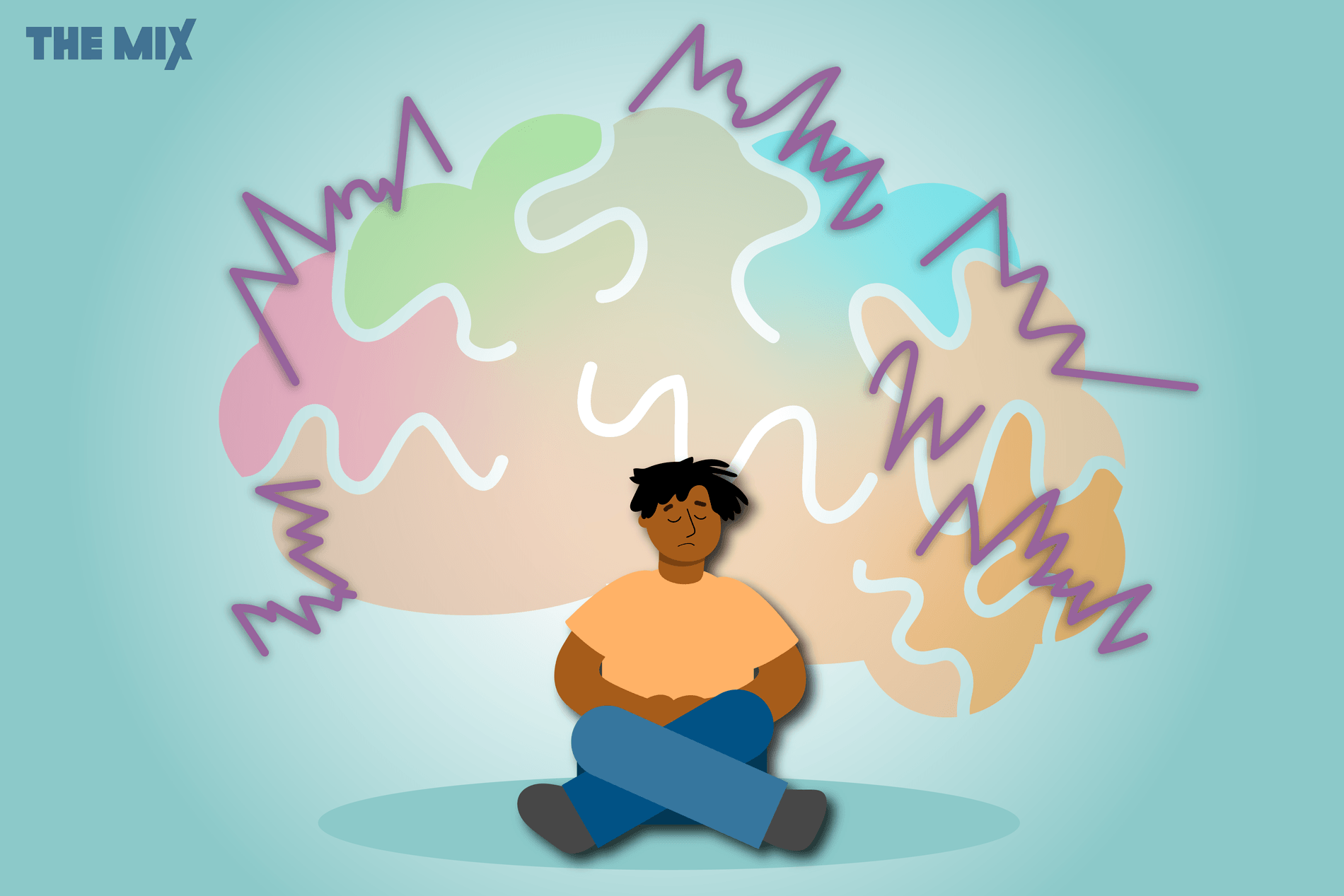What is trauma?
Trauma is a word we hear often when we talk about mental health, but what does it really mean? And if it’s so personal to each of us, can we even define it? The Mix teams up with blink to give it a go…

This article was co-written with blink. blink provides rapid and accessible mental health support that transcends waiting lists and financial barriers. They provide free professional talking therapies at various music festivals across the UK, and safe spaces for anyone to connect and discuss their mental health.
TRIGGER WARNING – This article contains references to trauma and traumatic events that readers may find distressing. For support, scroll to the bottom of the article.
What is trauma?
Trauma is an emotional response to a one-off or multiple events or circumstances that are experienced as threatening, stressful, or distressing, and feel out of our control or beyond our ability to cope. These may have lasting psychological and physical effects, which talking therapies and sometimes medication, can help with.
What forms can trauma take?
Whether an event is traumatic is defined by the impact on the individual rather than the event(s) itself. Trauma can come in many forms:
Acute Trauma: a response to a single highly stressful event.
Chronic Trauma: a response to ongoing or repeated traumatic experiences.
Complex Trauma: a response to many highly disturbing traumatic experiences over a long period of time.
What causes trauma?
Many things can cause trauma and all of them are valid. What might be traumatic to one person may not be to the next. We all react to stress and pain differently based on our past experiences, personality, and support systems. Nevertheless, here are some of the most common causes of trauma:
Bullying
Whether it takes place in a school or the workplace it irrelevant. Bullying is bullying, and it can be deeply traumatic. The constant fear, humiliation and stress from bullying can lead to feelings of loneliness, depression and anxiety that might be hard to shake.
Childhood trauma
Neglect, abuse, witnessing violence, living in an unstable home, and many other events can have lasting effects on a person’s development. Early trauma can have a crucial impact on how we form relationships, handle stress, and even view ourselves in the big wide world.
Violence and abuse
When we think of violence and abuse, our minds may automatically jump to physical abuse. However, any form of abuse can leave long-lasting trauma. This includes:
- Verbal abuse
- Emotional abuse
- Financial abuse
- Sexual abuse
- Domestic abuse
- Negligence
In many cases, someone may experience more than one form of abuse at one time. Needless to say, this can intensify a person’s trauma.
Sudden loss of a loved one
Losing someone close in an unexpected way (such as an accident or suicide) can cause immense emotional pain. The shock mixed with the grief can contribute to trauma that can last years after your loved one has passed.
Accidents and natural disasters
This can include (but not limited to) fires, car collisions, earthquakes, floods and anything else that can make someone feel out of control. Witnessing any form of destruction can leave a lasting emotional scar.
How trauma affects you
Trauma affects people in unique ways, both mentally and physically. Some common reactions include:
Emotional responses
The most common emotions that come with trauma include shock, anger, sadness, anxiety and denial, but this isn’t an exhaustive list and people experience many others.
Physical reactions
Trauma can affect your body in surprising ways. People often experience headaches, stomach issues, exhaustion, increased heart rate, or a mixture of symptoms. These are all linked back to your body’s stress response and its way of coping with the trauma.
Behavioural changes
After a traumatic event (or events), people may tend to withdraw from others, struggle with day-to-day tasks, or turn to substances to help numb their feelings.
Long-term effects
If left unaddressed, trauma can lead to mental health issues like anxiety, depression, or PTSD (post-traumatic stress disorder). In some cases, it might create flashbacks, nightmares, or intrusive thoughts about the event.
Healing from trauma
First things first, you don’t have to struggle alone. There is so much support out there to help with what you’re going through. Check our support section below to find out more.
Here’s what a blink psychologist has to say:
“It can helping by putting your experience into words, lean on those you trust, practice patience and self care.
If your distress continues, speak to your GP or other healthcare professional who may suggest referring you for talking therapies or might suggest medication.
The good news is talking therapies have been shown to be effective in supporting those affected by the above forms of Trauma and are available through charities, privately or via your local NHS Talking Therapies service.”
Trauma isn’t something that just ‘goes away’. It can take time to heal, and there’s no set timeline for recovery. However, by understanding trauma, and recognising its signs, we can work towards managing it effectively and feeling better! Remember, you’re never alone and there’s always support available, just take a look below:
Support and resources
- Take a look at the rest of The Mix’s mental health resources here.
- Are you affected by Post Traumatic Stress Disorder (PTSD)? Read our article here.
- Speak to someone via The Mix’s crisis messenger, available 24/7.
Next Steps
- Chat about this subject on our Discussion Boards.
By
Updated on 08-Nov-2024
Sorry, comments closed
No featured article














